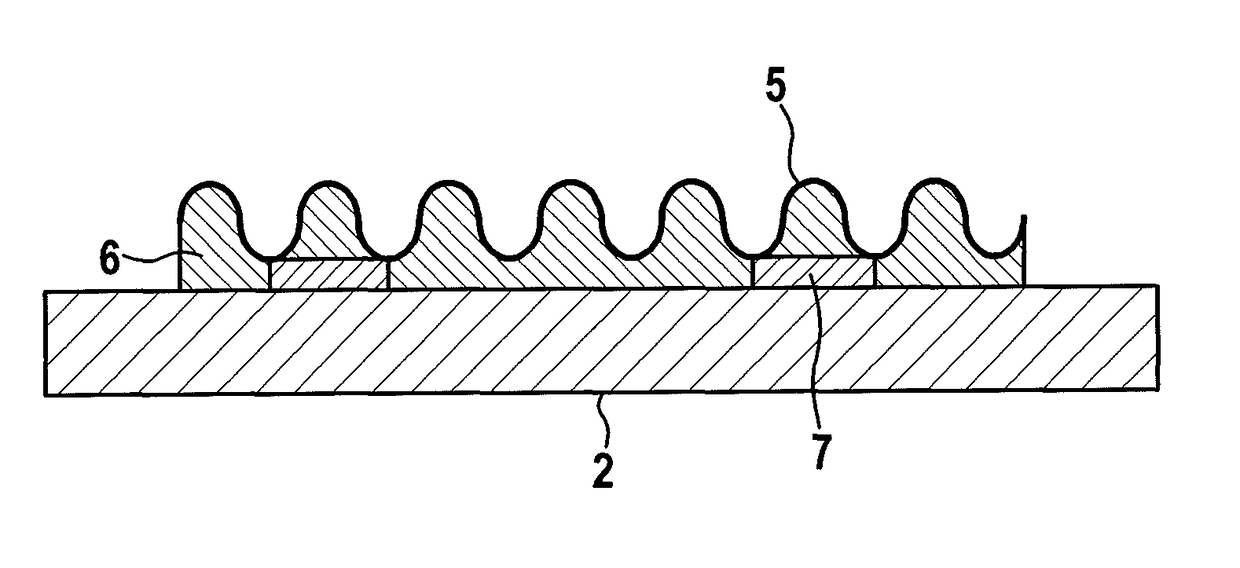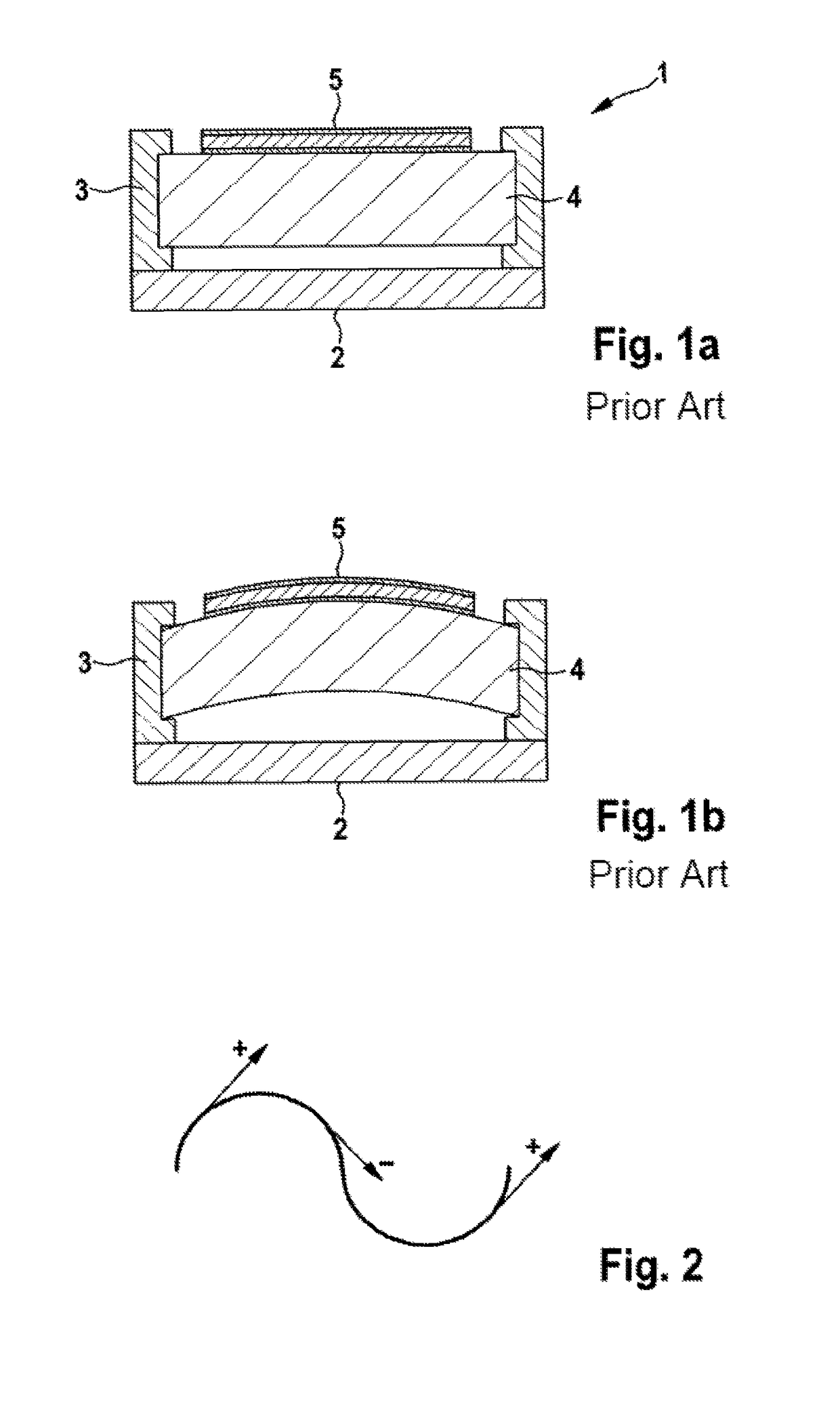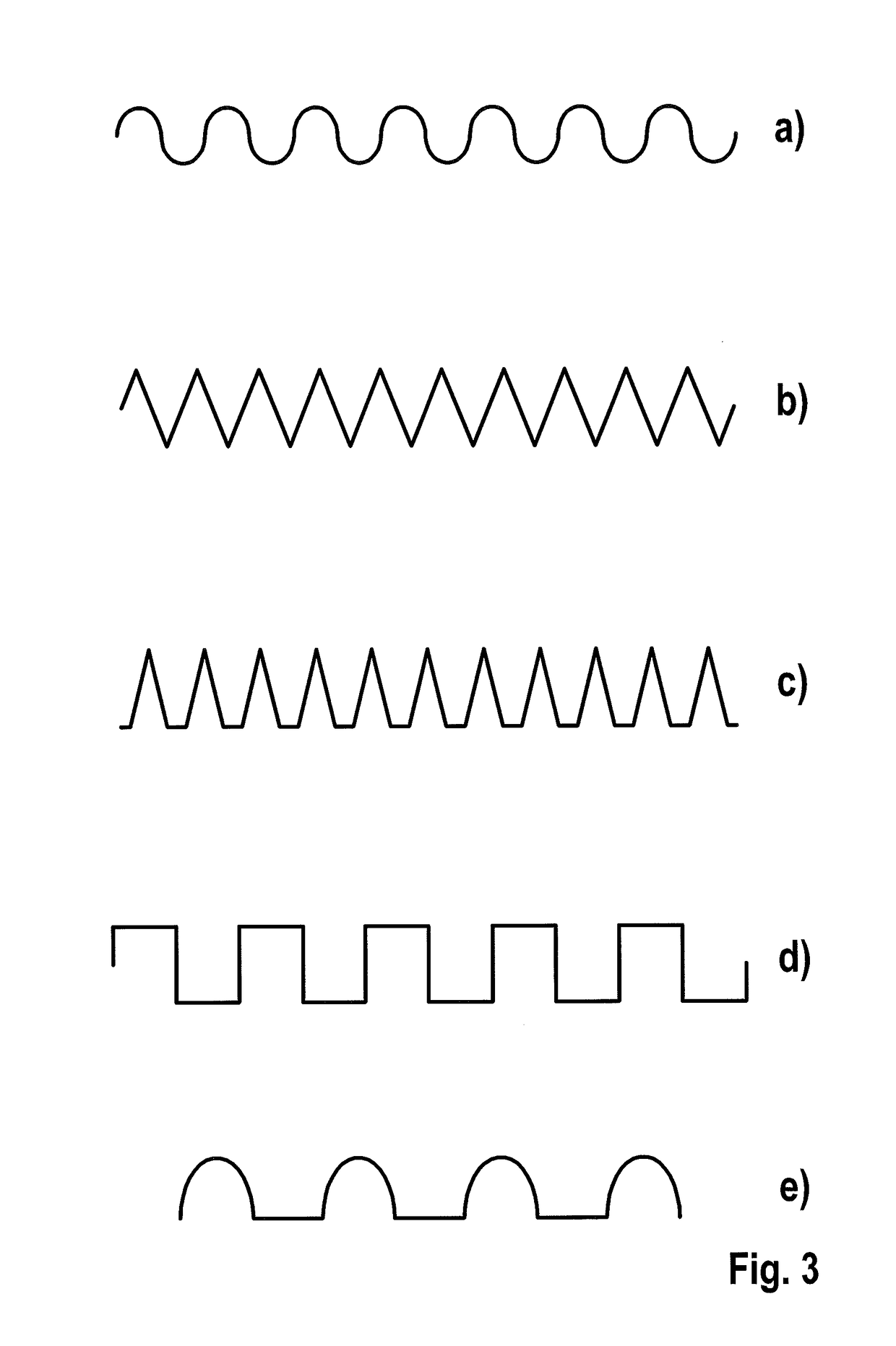Electroactive sound transducer foil having a structured surface
a transducer foil and structure technology, applied in the direction of piezoelectric polymer transducers, electrical transducers, electrical apparatus, etc., can solve the problems of affecting the effectiveness of the transducer, affecting the overall depth and vibration characteristics of the transducer, and affecting the effect of the transducer, so as to improve the radiation behavior, improve the transducer properties, and improve the effect of efficiency
- Summary
- Abstract
- Description
- Claims
- Application Information
AI Technical Summary
Benefits of technology
Problems solved by technology
Method used
Image
Examples
Embodiment Construction
[0039]FIG. 1a shows the schematic cross section of a conventional sound transducer design 1 including a component surface 2 on the rear side of the transducer, two frames or mountings 3 on the two sides of the sound transducer foil composite including a carrier layer 4 and, situated thereabove, a composite 5 made up of a piezoelectric layer and two electrode layers. The surface of the sound transducer foil is not structured, and the foil is clamped straight between the mountings 3. This results in a constant surface slope of the sound transducer foil.
[0040]FIG. 1b shows the schematic cross section of a conventional sound transducer design including a sound transducer foil composite made up of a carrier layer 4 and, situated thereabove, a piezoelectric layer and two electrode layers 5. The surface of the sound transducer foil is not structured. The composite is clamped between mountings 3 in a curved manner. This results (from left to right) first in a positive slope of the sound tra...
PUM
 Login to View More
Login to View More Abstract
Description
Claims
Application Information
 Login to View More
Login to View More - R&D
- Intellectual Property
- Life Sciences
- Materials
- Tech Scout
- Unparalleled Data Quality
- Higher Quality Content
- 60% Fewer Hallucinations
Browse by: Latest US Patents, China's latest patents, Technical Efficacy Thesaurus, Application Domain, Technology Topic, Popular Technical Reports.
© 2025 PatSnap. All rights reserved.Legal|Privacy policy|Modern Slavery Act Transparency Statement|Sitemap|About US| Contact US: help@patsnap.com



